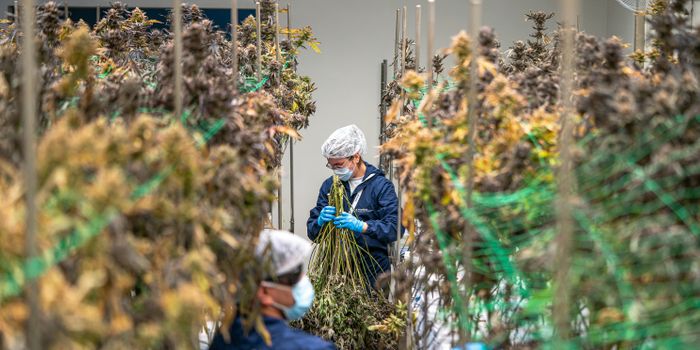Rare Crop Chemical Found in 80% of People Tested
Pesticides are frequently used in agriculture, and the term can refer to herbicides, which target weeds; insecticides that kill or control insects; and fungicides that help reduce the growth of mold or mildew. Chlormequat is a rarer pesticide that is used to control the growth of plants. When it's applied to grains like wheat, barley, or oats, for example, it prevents them from from bending over and breaking, which would otherwise reduce yields and grain quality.
A small, new research study has determined that chlormequat is present in the urine of four out of every five people that were tested, or 80 percent. In this study, the researchers looked for the pesticide in the urine samples of 96 individuals, which were collected from 2017 to 2023; they found chlormequat in 77 of the samples. When present, the levels of chlormequat increased as the urine specimen collection date got more recent, so it's possible that people's exposure levels are rising.
Until 2018, the pesticide could only be used on ornamental plants in the United States. However, the EPA has permitted its use on imported oats and other foods, and raised the permissible level in 2020. Many of those imported foods are grown in Canada. In 2023, permissible use expanded further to include barley.
The findings were reported in the Journal of Exposure Science and Environmental Epidemiology by the Environmental Working Group (EWG). This organization is a nonprofit advocacy group funded primarily by philanthropic donations from organizations such as the Park Foundation and the Walton Family Foundation. Their president, Ken Cook, is a prominent lobbyist who promotes environmental causes.
In animal tests, chlormequat has had detrimental impacts on the central nervous system, it also impairs maternal fertility. Human exposure can cause skin, eye, and lung irritation, and nausea or vomiting. In Europe, there have been case reports of human fatalities because of chlormequat poisoning, and there have been instances in France and Belgium in which the pesticide was used illegally to euthanize animals. The chemical may also cause developmental defects and liver damage, although studies are still not conclusive.
"EWG's new study on chlormequat is the first of its kind in the US," said lead study author Alexis Temkin, PhD, an EWG Toxicologist. "The ubiquity of this little-studied pesticide in people raises alarm bells about how it could potentially cause harm without anyone even knowing they've consumed it."
EWG is now urging the US Food and Drug Administration to do more research on chlormequat, and is asking the Centers for Disease Control and Prevention to include chlormequat in its biomonitoring program.
Previous work by EWG scientists has also identified chlormequat in a variety of oat-based food products, but only those that were not organic; organic oats had no chlormequat or extremely low levels.
Sources: Environmental Working Group, Journal of Exposure Science and Environmental Epidemiology









